
by Erica Frank
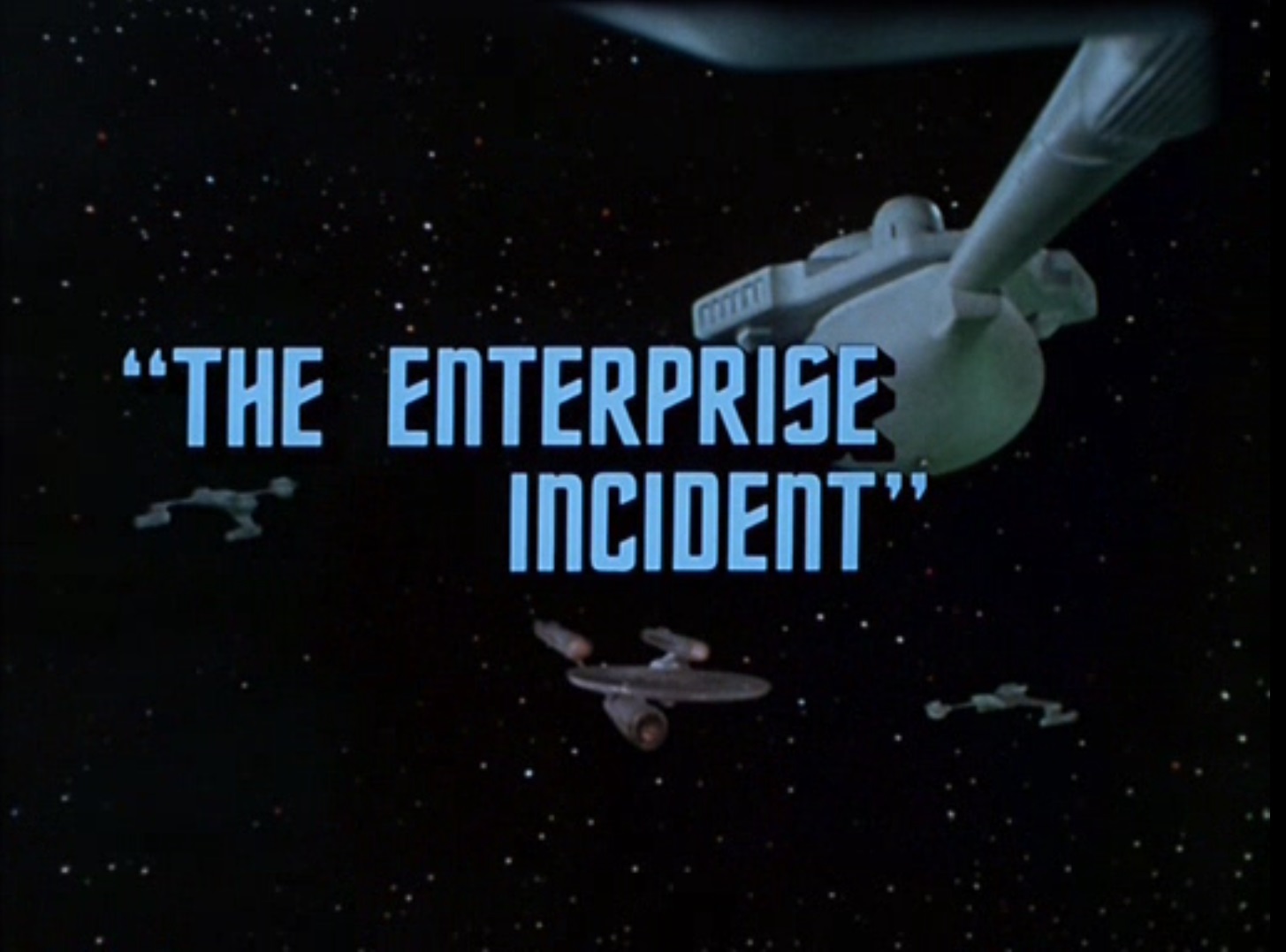
This episode begins with Kirk acting strangely, and everyone on the Enterprise has noticed. He is snappish, angry, arbitrary; he gives orders that defy Federation law and threatens people who argue with him.
His crew is loyal; they have been through many hardships together—so when he orders them into the Romulan Zone, they obey, although they are obviously nervous.
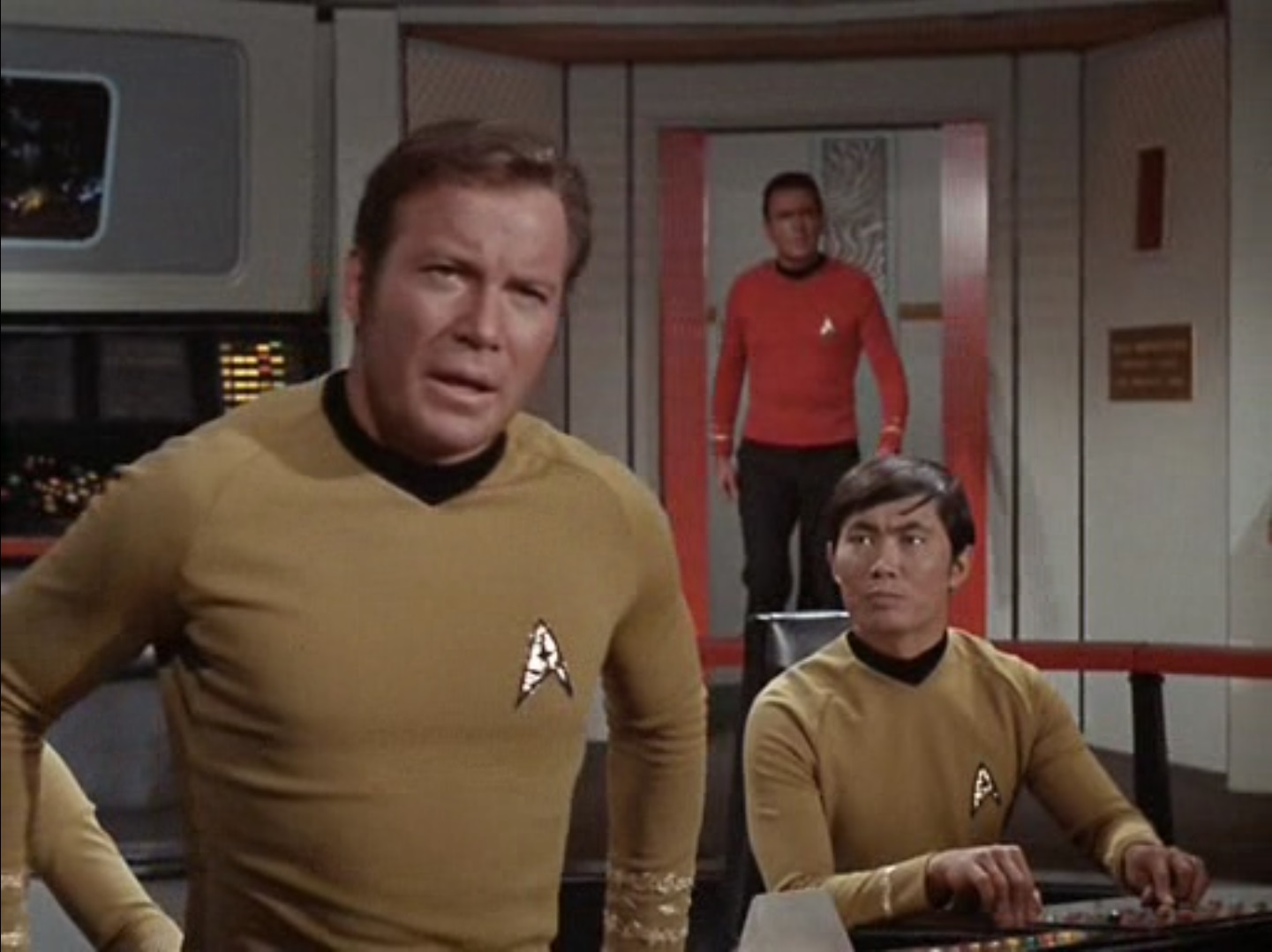
The Captain's orders are final
They are, of course, discovered, surrounded by Romulan vessels of a new, Klingon design. Kirk and Spock are compelled to beam aboard the Romulan ship to discuss matters, in exchange for two Romulan prisoners sent to the Enterprise. Kirk insists their location is a matter of instrument error: by the time they discovered the mistake, they were too deep in Romulan territory to get away quickly. The Romulan Commander (the first woman flag officer we have met in the show) says that sounds like—well, she doesn't call it the produce of a hind end of a male cow, because she is being politely formal, and this is a television show for families (and the Romulans may not have cattle), but she obviously indicates that it sounds implausible to her.
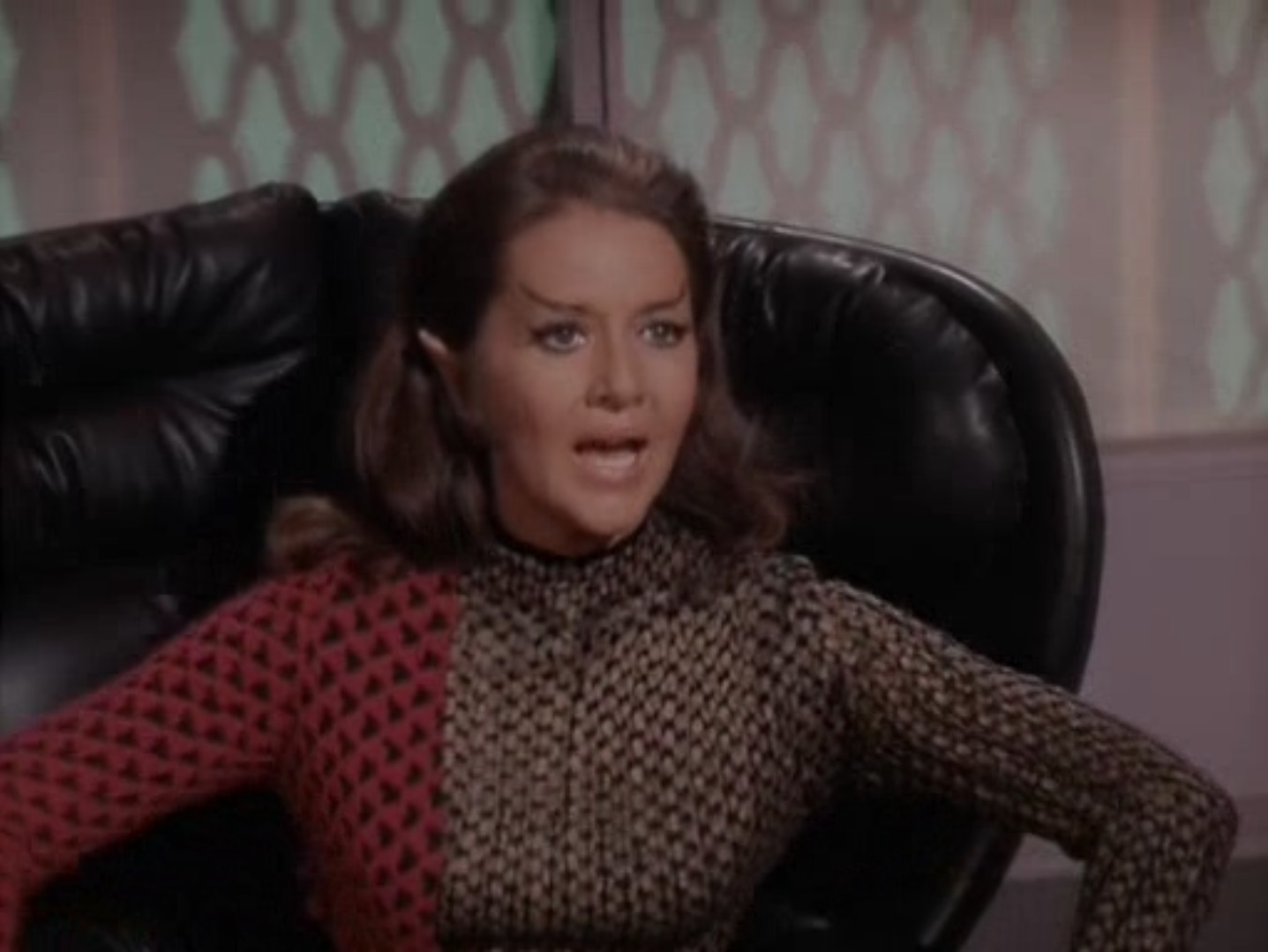
Color her unconvinced
Spock… confirms her opinion. Says the captain has been irrational recently. That he ordered them past the Neutral Zone. Kirk gets angry and threatens him, and is removed to the Romulan brig. Later, he injures himself enough that they call McCoy to attend him, and he attacks Spock. Spock defends himself with the "Vulcan death grip," an attack we haven't seen before, that looks surprisingly similar to the mind-meld grip.
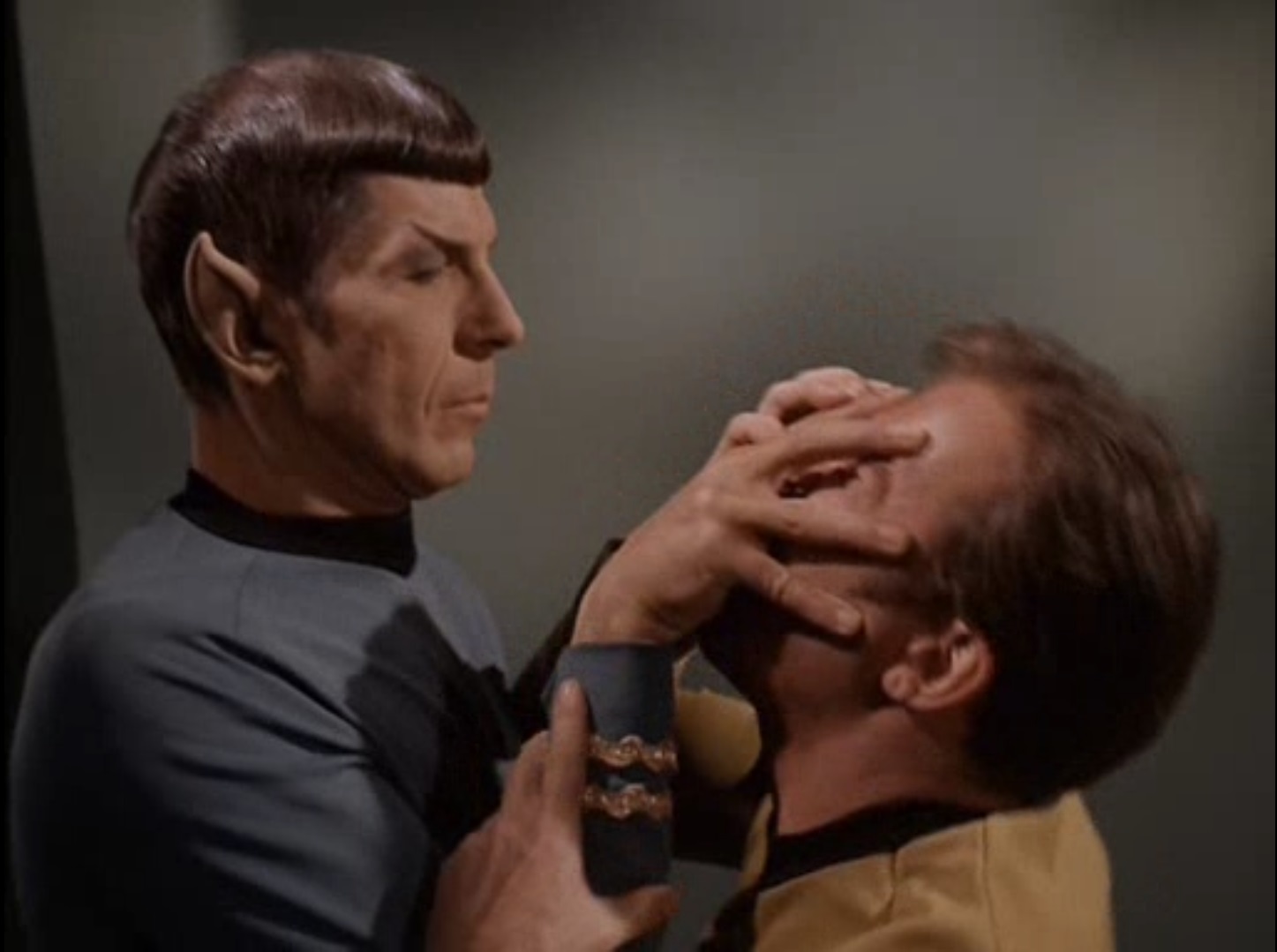
The closer Jim gets, the worse he looks…
The Romulans send the captain's body back to his ship while the Romulan Commander attempts to convince Spock that he'd be much happier in the Romulan empire.
Have we seen this before?
McCoy revives Kirk. (I wonder if anyone actually thought Kirk died.) Kirk tells a select few people that his supposed insanity was a ruse, a form of dodging accountability in case they were captured. This is an undercover mission.
The interesting part of the episode, for me, is the Romulan Commander's discussions with Spock. She attempts to seduce him in multiple ways, first laying out how much more power he'd have in the Romulan empire, and when Spock says he does not want command of a ship, she switches tactics. She offers him fine Vulcan food, which he admits is better than what's on the Enterprise. Pours him drinks—first a clear blue-green liquid, and later something orange, served in small glasses like liquor. Spock eats tiny food on toothpicks, and relaxes with her.
She puts herself into the bargain: "Romulan women are not like Vulcan females; they're not… dedicated to pure logic." She drapes herself enticingly, making sure he knows what she's offering. She whispers her name in his ear, and he tells her it's beautiful.

Oiling her traps
At each point, he makes appreciative comments, tells her that the offer is indeed a good one. That he can tell he'd have more power, more freedom, more creature comforts in the Romulan empire.
Eventually, he agrees to her terms: he will lead a small party of Romulans aboard the Enterprise, and from there order the ship to surrender at a Romulan port, her flagship at its side.
It doesn't matter what the terms are. He's lying. He's obviously lying—at least, it's obvious to anyone who knows him. Maybe outsiders who think Vulcans are actually emotionless would believe that Spock agreeing that the food is good means he's content to betray his heritage and his captain and wander off to a government with helmets designed to cover pointed ears.
Predictable but not boring
Instead, it turns out Spock was stalling for time so Kirk could sneak back to the Romulan ship in disguise and grab the new cloaking device. Scotty then has to install and use it before the Romulans get their phasers online—of course there's a deadline. But if we didn't believe Spock used a death grip on Kirk, we weren't going to believe the Romulans would succeed in blowing up the Enterprise. We wonder how they will escape, but not whether.
We could see the Commander convincing herself that her seduction was working—and we could also see Spock watching her reactions, feeding her facts that would convince her that he agreed, without actually admitting to being moved by her offer. Since he's a Vulcan, she doesn't expect him to offer an emotional reaction—and she fails to notice that not only is his enthusiasm lacking, so is any admission that he's actually been persuaded.
He says that the food is better than what the Enterprise has—he doesn't say that he'd leave his position for it. "Please give up your career; we have better snacks" is not going to work on anyone who actually likes their job.
Four stars. I loved the nuanced interactions between them, and I could tell something was off about Kirk but wasn't sure what until McCoy revived him.
Rewriting the present

by Gideon Marcus
Somewhere in North Korea, 83 American sailors and officers are interned, their captain occasionally forced to make confessions as to why his spy ship, the U.S.S. Pueblo, was inside Communist waters in January of this year. I'm sure you all remember the news—air units were redeployed from Vietnam to Japan, the U.S.S. Enterprise (the aircraft carrier, not Kirk's ship) was stationed off the North Korean coast, and there were rumbles of an impending World War 3. Indeed, if it hadn't been for the North Vietnamese launching their Tet holidays offensive at the end of January, shifting our focus, who knows where things might have ended up?
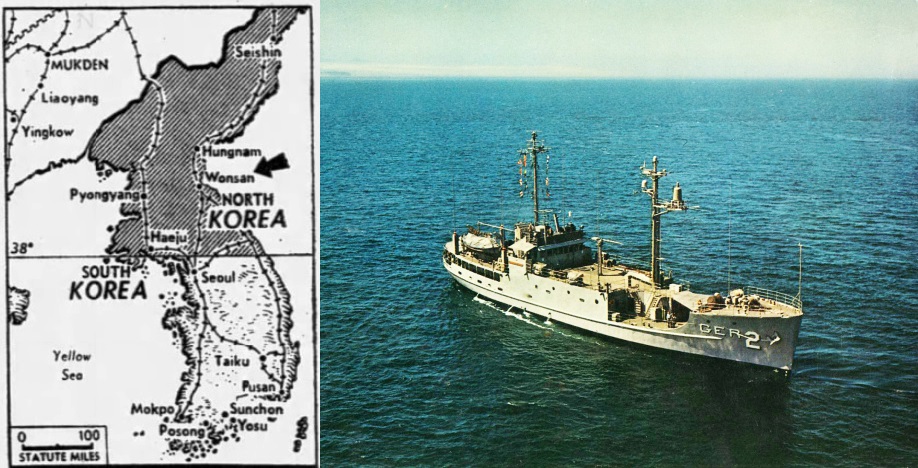
With The Enterprise Incident, the metaphor couldn't be more blatant. The Romulans have been remolded. Gone are the Kriegsmarine/Roman hybrids that populated "Balance of Terror". Now they are cloaked in Orientalism, down to the little sideburns Joanne Linville sports, with their smooth speech reminiscent of every movie that features a sinister Red Chinese or Korean. Vina's exotic theme from "The Cage" has been reworked for the Romulan Commander (effectively, I might add). The defense-minded Romulans, who showed no interest in capturing the Enterprise when it violated the Neutral zone in "The Deadly Years", suddenly want nothing more than the prize of one of Star Fleet's finest vessels, a greed that proves their undoing.
And so, the American public gets to have its cake and eat it, too. The Romulan Commander has the right of it when she accuses Kirk of entering Romulan space on a Federation-sanctioned espionage mission to get the cloaking device. Yet, thanks to a series of Mission: Impossible-style exploits, the "good guys" get away with not only bearding the lion, but stealing the lioness. Rah, rah. We win.
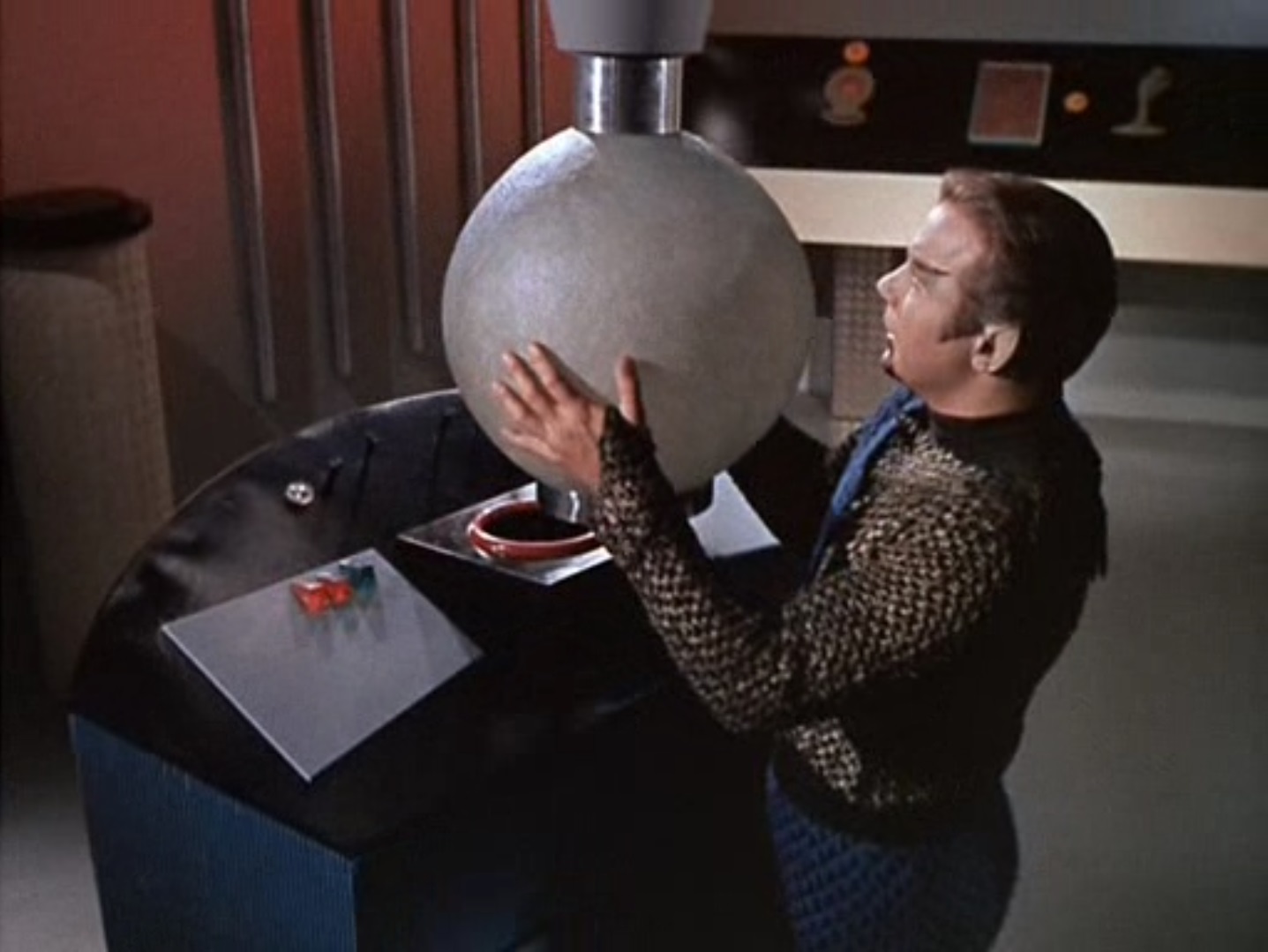
For ease of maintenance, you can't beat the easy-to-remove Cloaking Device!
This episode is only the latest in what has become a kind of motif. Earlier this year, John Wayne's "The Green Berets" (the movie that took Sulu away from us for much of Trek's second season) turned Vietnam into World War 2, complete with a platoon with soldiers named Muldoon and Kowalski—and precious few black troops. David Janssen, no longer a fugitive, plays a jaded reporter, who comes to learn the value of the American presence in Southeast Asia. And so, contrary to any news you might have read this year, we win the war in Vietnam.
And just last month, the movie Anzio came out, detailing that SNAFU of a landing on the Italian coast in January 1944. Robert Mitchum plays…a jaded reporter, who comes to learn the pointlessness of the American presence in southern Europe. Thus, the anti-war movement comes to World War 2.

Mind you, "The Enterprise Incident" is better than either of those two movies. It's superlatively paced, the dialogue crackles, the chemistry between Nimoy and Linville is palpable, and Shatner makes a convincing Romulan. I'm even getting used to Scotty's new hairdo. But the flag-waving has not been so blatant since "The Omega Glory". Juxtaposed with the nauseating Nixon ad that aired halfway through, lambasting American policy in Vietnam and promising "peace with honor", the episode just didn't sit well with me.
Four stars. Just have your Maalox tablets handy.
The Lady IS the Tiger

by Janice L. Newman
I’ll admit, when I watched The Enterprise Incident the other night, at first I was frustrated by the behavior of the Romulan Commander. But upon watching the tape we made of the episode with our trusty “Videocorder”, my feelings changed.

Women have an interesting, inconsistent place in the Star Trek universe. Sometimes they are slaves or seemingly exist only to titillate the male characters, like Shahna or Kara (the dancer from “Wolf in the Fold”). Sometimes they have positions of power and importance, like Uhura, Commissioner Nancy Hedford, or Sylvia. Yet even the women in the latter group often give up their position or power when tempted by romantic love. I originally thought the Romulan Commander fell into this same trap, but upon re-watching the episode, I realized I was wrong.
The Romulan Commander is doing her job.
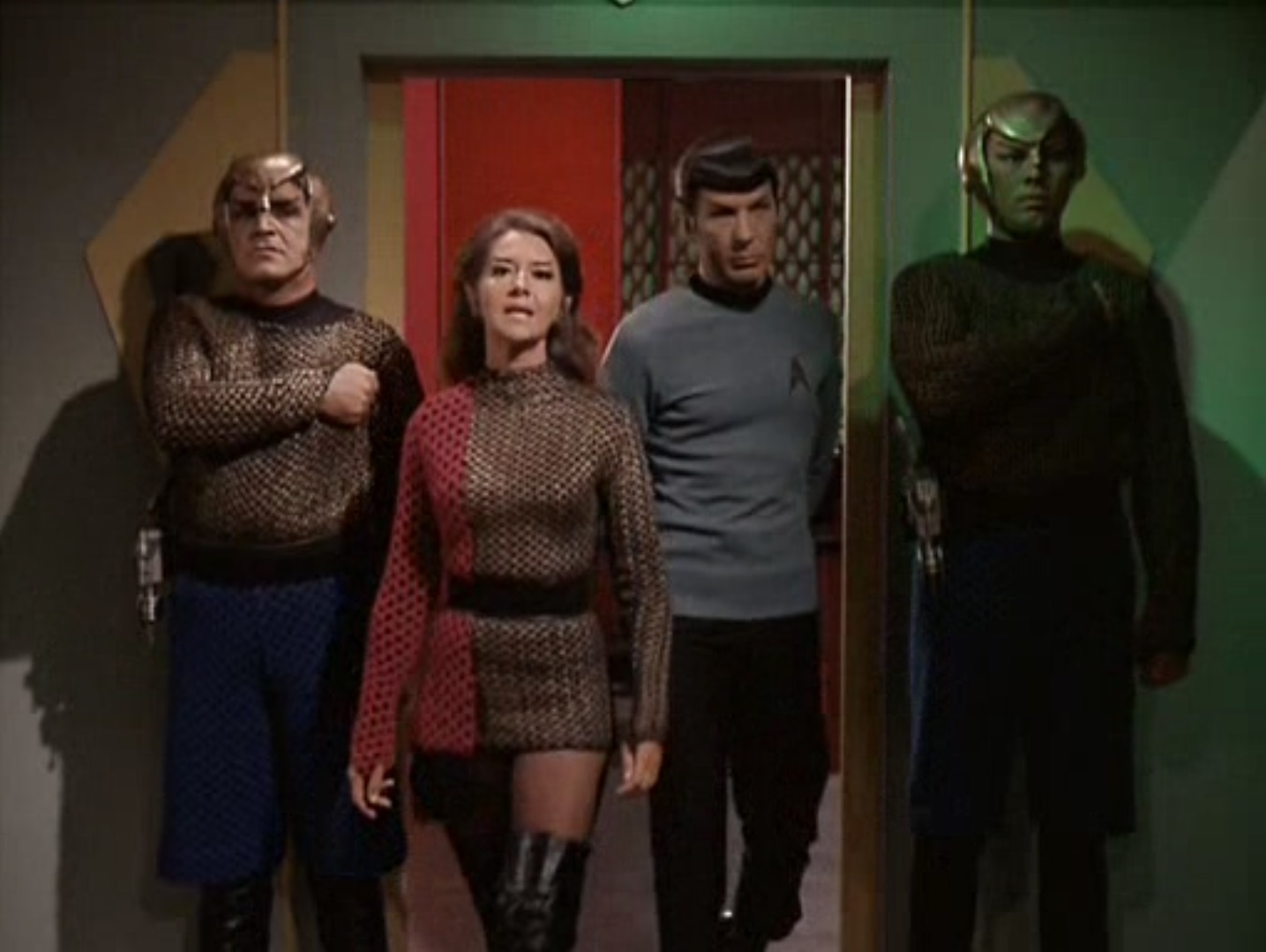
These boots are made for commanding
When the Enterprise flew into the neutral zone, what a plum it must have seemed had fallen into their lap. After the ‘shoot first, ask questions later’ response from “The Deadly Years”, perhaps the Romulans re-evaluated their policy for when a ship like the Enterprise strayed into their territory. Or perhaps this particular commander was just especially ambitious. Regardless, rather than immediately blowing up the ship, she looked for a way to capture it and its wealth of intelligence. Knowing that the crew would surely self-destruct rather than let themselves be taken, she sought a crack in their armor that she could exploit.
Her interest in Spock thus becomes a rational, considered strategy rather than that of a woman letting her heart overrule her mind. She is believably attracted to him, but she is also doing her duty. If she can ‘turn’ Spock, and if he then orders the crew to surrender rather than self-destructing, not only will she win the starship, but the cooperation of a high-ranking Starfleet officer.
Perhaps her reach exceeds her grasp. Perhaps she is too greedy. With the benefit of hindsight and inside knowledge of Kirk’s and Spock’s personalities, it’s easy to be judgemental and say, “She should have just blown up the ship,” or “She should have known better.” But these are still better than, “She should have been thinking with her head rather than her heart.”
When her actions are viewed as those of an ambitious Romulan Commander who wants to get ahead and who is loyal to her people, they make perfect sense. After all, how many times has Captain Kirk used seduction to manipulate women and get what he wants? Can we blame the Romulan Commander for taking a gamble and trying the same? She may have lost, but I can’t help but respect her for trying.
I also appreciated Spock’s acknowledgement that no other outcome was possible, because she would not have truly respected him if he’d made such a choice. No matter how attracted to him she might have been, in the end she would merely have been using him, and they both know it. If there were any doubts that she was seducing him for political more than personal reasons, this line lays them to rest.
Three and a half stars.
The bounty

by Mx. Blue Cathey-Thiele
Two officers beam onto a ship. The captain is confident and capable, skilled at manipulation, and fools even the audience. One provides a distraction and the other collects a valuable asset in a dangerous gamble.
No, I don't mean Kirk stealing the cloaking device.
It was a neat trick and one that allowed the Enterprise to escape without a trace, but I would argue that it was not the actual mission goal, or at least, not the only mission goal. As Kirk and Spock went up against the Commander – who could serve as the Romulan answer to Captain Kirk – this was yet another layer of the ruse. Romulan technology is advanced, but what is more powerful? Knowledge.
It was only in "Balance of Terror" that Romulans were even seen for the first time in a century. Additionally, Starfleet intelligence had already told some of the Bridge crew that Romulans were now using Klingon ship design. Between a cloaking device and the weapons capability to obliterate entire outposts, why switch to a design that the Fleet is not only more familiar with but has dealt with more often? The Enterprise could be destroyed before they ever make contact with a ship past the Neutral Zone. An alliance with the Klingons could change the terms of the Organian peace treaty. Klingon/Federation battles may not be possible but bringing in allies might circumnavigate the way the Organians neutralized fighting capabilities. Finding a way to disrupt a power consolidation such as that seems a far more compelling reason to risk losing the Enterprise or potentially igniting a new conflict with the Romulans.
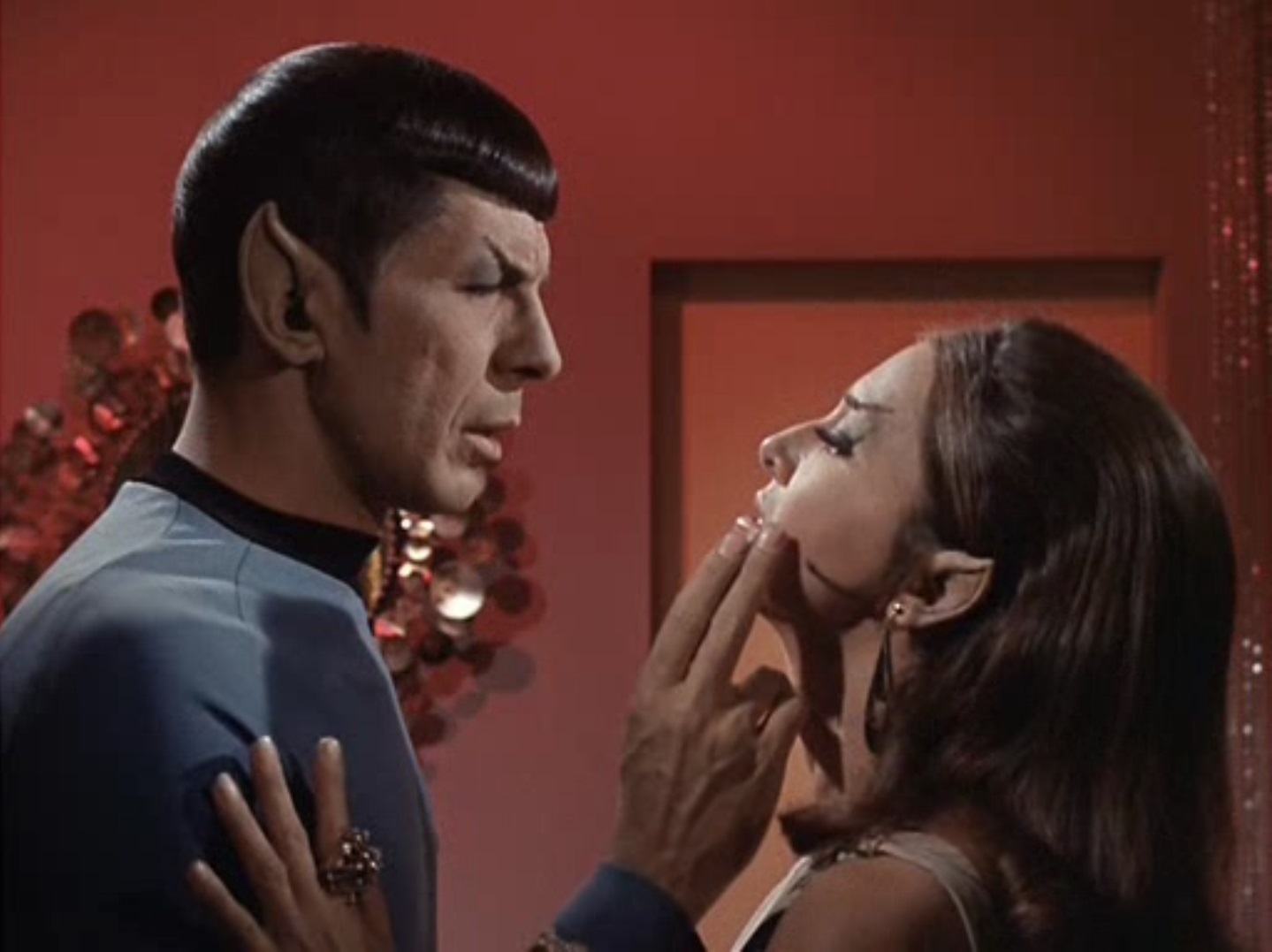
Spock obtains the real prize of the expedition
With Kirk "dead" and the more immediate threat "discovered", Spock was free to act. He and the Commander shared cultural information, confirming aspects of what the species knew of each other. He also had time to observe Romulan command structure, the quarters of the Commander, and possibly even collect information from her mind. This would be a gamble, as they share distant ancestry and Spock can be vulnerable when connecting with another mind, but not inherently riskier than the plan for Kirk.
Whether they escape with the cloaking device or intelligence, Starfleet gains something to use.
5 stars
Mission: Possible

by Joe Reid
In his letter to the Corinthians, Saint Paul says, “…I am made all things to all men, that I by all means save some.” This episode, “The Enterprise Incident”, epitomized becoming many things to a varied audience. This episode skillfully blended multiple themes and genres into a cohesive quilt that when looked at from a distance you realize isn’t a quilt at all. It is a beautiful tapestry, a singular thing that through different sets of eyes will reveal itself differently.
In the past I complained about episodes that attempted to do too many things in one airing: “The Gamesters of Triskelion” comes to mind. The different themes in that episode were not blended, to the point of being jarring. “The Enterprise Incident” presents a military thriller, a heist story, a secret agent tale, a romance, and a science fiction story all rolled into one. This unified, multifaceted story is not the only reason that I loved this episode. Here are some other reasons:
It didn’t go out of the way to tell the audience what was happening. The events told the story. There was no long explanation from Captain Kirk as to what was happening. We were given no reason why Romulans were flying Klingon ships. There was no discussion as to why the commander of the Romulans was female and whether that was common. The audience was given no revelation as to whether or not Romulan commander had feelings for Spock or if she was simply tricking him. In this episode things were what they were, and it was up to the audience to make sense of the event for themselves. An intelligent tale for intelligent viewers.
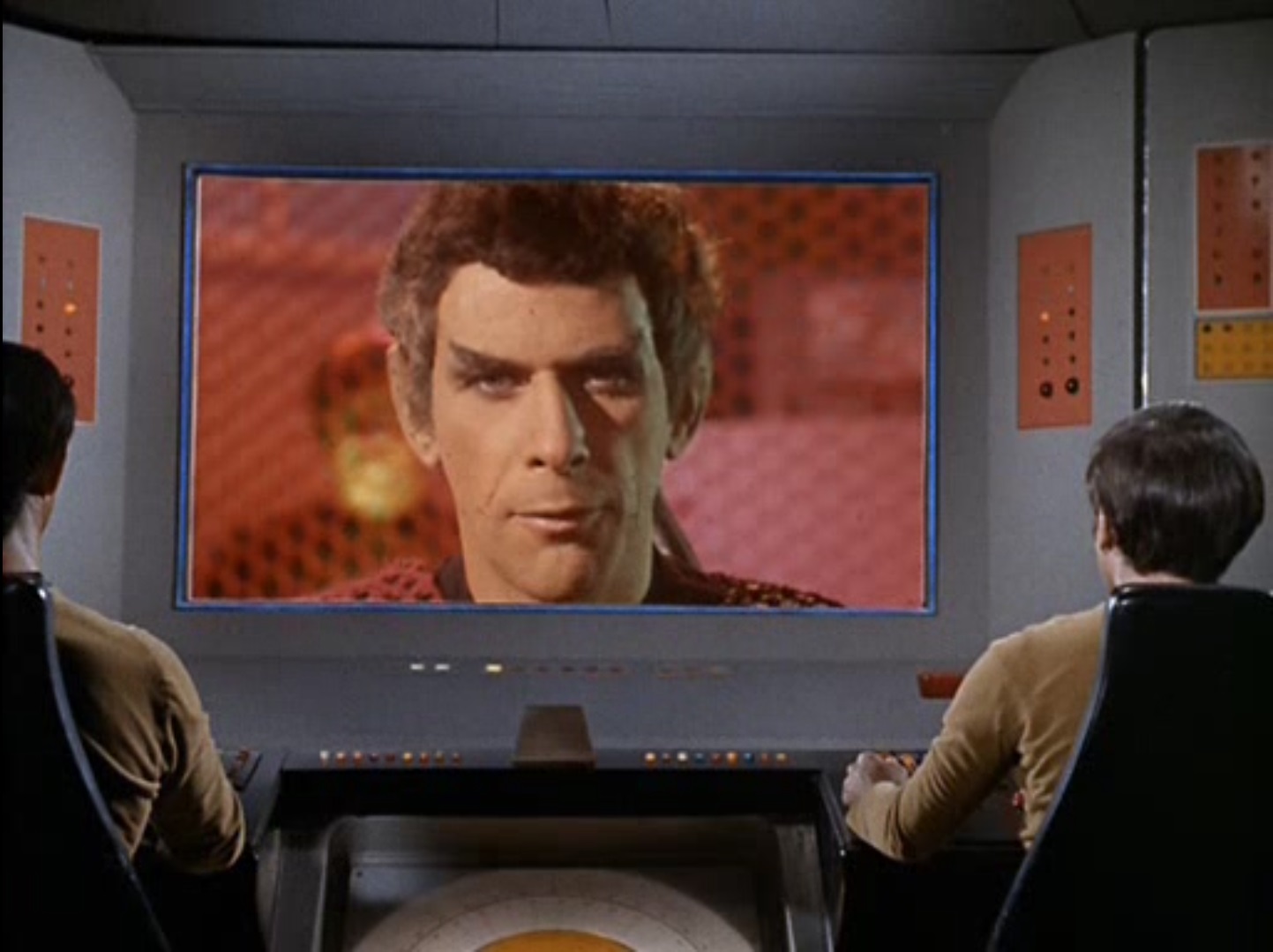
Even Subcommander Tal is impressed
Another reason to love this episode is because of the amount of respect that was given to the Romulans. There were not overtly evil, mustache twirling, or stupid enemies in this episode. The Romulans made no logical missteps in the episode. Their actions were based on information that they verified. The Romulan commander didn’t take it for granted that Kirk lost his sanity, she allowed the information to be verified by both Spock and Bones before believing it. The Romulans monitored transmissions from their own ship and acted when they discovered alien/human signals. They remained vigilant and intelligent in every scene. Spock and the others didn’t defeat the Romulans, they simply outmaneuvered them by being slightly more clever in the way they responded to the information that each person had at the time. Outside of Kirk faking his death, no one was even killed in this episode, which for Star Trek is rare.
Seeing what came before it, I would have thought it impossible for Star Trek to tell a unique and novel multifaceted story, representing so many things to so many people, without speaking down to the audience. I’m happy to say that they successfully completed the mission in more ways than one. For that I am grateful.
Five stars

![[October 4, 1968] (<i>Star Trek</i>: "The Enterprise Incident")](https://galacticjourney.org/wp-content/uploads/2023/10/681004title-672x372.jpg)


![[December 24, 1966] Unquiet on the Romulan Front (<i>Star Trek</i>: "Balance of Terror")](https://galacticjourney.org/wp-content/uploads/2021/12/661224title-672x372.jpg)













